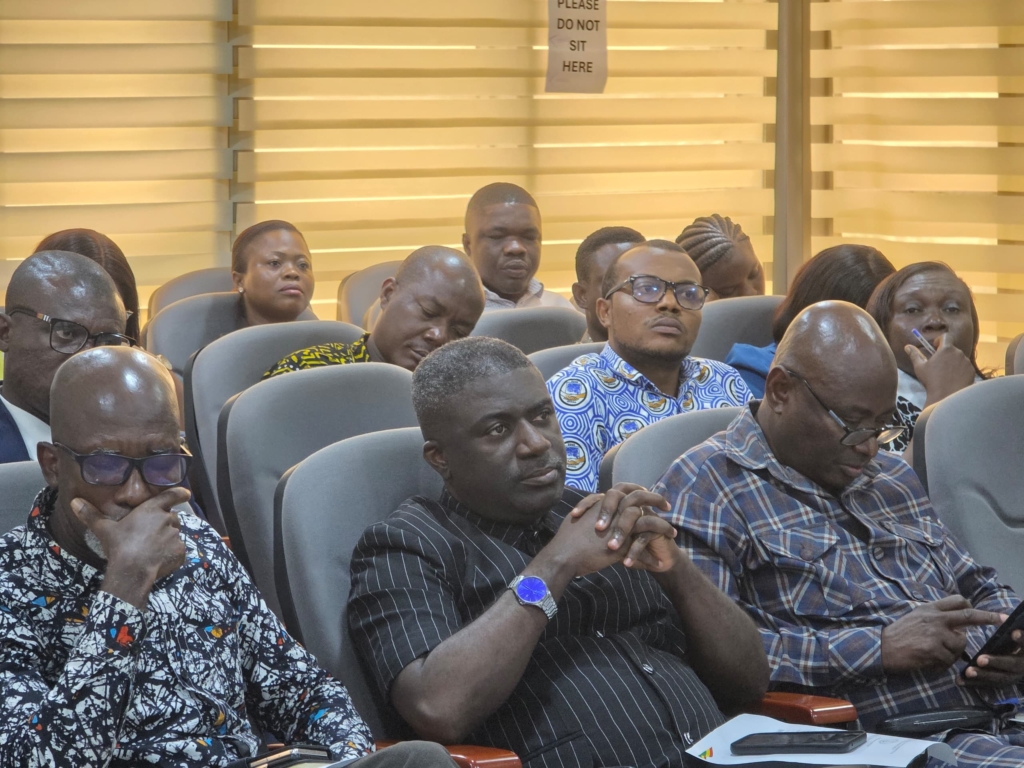By Mishael Quaynor Nasrullah Ibn Mutawakkil 41pm
The Inter-Ministerial Coordinating Committee (IMCC) on Decentralisation has concluded the National-Level Stakeholder Consultations on the formulation of the National Decentralisation Policy and Strategy (NDPS 2026-2030).
The stakeholder consultations were held at the main conference room of the Office of the Head of Local Government Service (OHLGS) in Accra.
The consultations brought together representatives from Ministries, Departments, and Agencies (MDAs), Regional Coordinating Councils (RCC), Development Partners, Civil Society Organisations (CSOs), and the National House of Chiefs.
Since 2010, Ghana’s decentralisation reforms have been guided by successive policies, with the most recent framework expiring in December 2024.
The new NDPS aligns with Articles 35(6d) and 240 of the 1992 Constitution and supports the government’s vision under the Reset Agenda.
Addressing participants at the final session, the Executive Secretary of the IMCC Secretariat, Dr. Gameli Kewuribe Hoedoafia, explained that a root-and-branch review of the previous decentralisation policy had revealed several gaps and weaknesses in the sector.
In this regard, he stated that a team of experts led by Dr. Esther Ofei-Aboagye, with Prof. Kwamena Ahwoi serving as Oversight Consultant, and supported by a reference group of Experts, was tasked with leading formulation of a new policy.
The NDPS 2026-2030 is anchored on the 2024 manifesto of the government and aligns with the Medium-Term National Development Policy Framework (MTNDPF) for 2026–2030, enabling both policies to be assessed holistically when they conclude simultaneously at the end of their period.
Dr. Hoedoafia further outlined that the upcoming NDPS (2026–2030) will focus on six key thematic pillars: Political Decentralisation, Administrative Decentralisation, Decentralised Planning, Fiscal Decentralisation and local finance, Local Economic Development, and Popular Participation and Accountability.
He added that, “for the first time, the thematic pillars will be shaped by six cross-cutting themes in response to the global Sustainable Development Goals (SDGs) and the evolving priorities of Ghana’s governance landscape.
“These cross-cutting issues are Climate Change, Biodiversity and Environmental Management, Gender Equality, Disability and Social Inclusion, Technology and Innovation, Ethics, Values, and Change Management, the 24-Hour Economy, and Safety and Security.”
To facilitate meaningful and focused discussions, stakeholder institutions were grouped into clusters based on these thematic pillars.
The Executive Secretary also emphasised that decentralisation is not only about transferring power to the Local Level, but also about restructuring central-level institutions.
“Decentralisation is not only about the people down there. It is also about institutional realignment and restructuring, where Ministries, Departments, and Agencies at the centre focus on policy formulation, monitoring, and evaluation, while implementation takes place at the local level to improve service delivery,” he said.
The IMCC secretariat is expected to present the draft policy to the Technical Committee, then to the IMCC before it goes to Cabinet for consideration and approval.
The policy is anticipated to be finalised by August 2025.
